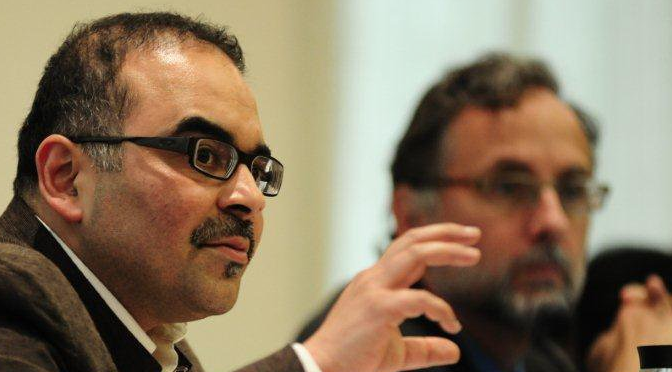TeachHigher Update – Breaking News
Are you up for the demo on Friday 19 June?
(12pm at Library Road)
Can you spare an hour to make a poster/banner?
(Wednesday 17 June from 4-7pm)
Or distribute flyers?
(Wednesday 3 June at 12pm at Library entrance)
Read about the latest achievements below or in the attachments.
National Support for Warwick UCU’s Campaign against TeachHigher
Last weekend, UCU Congress (the body which decides UCU policy for the whole of the UK) voted to campaign against TeachHigher – see motion 66A.1 here. In a letter to Nigel Thrift, Michael MacNeil, National Head of Bargaining and Negotiations, calls it “an issue of national importance for the whole union”. UCU have reported Warwick’s story here and here.
|
UCU – University and College Union – University of Warwick under fire for ‘regressive’ change to casual contracts
UCU has called for a rethink of ‘regressive’ plans by the University of Warwick to change the way it manages staff on casual contracts.
|
Staff and Student Demonstration against Casualisation and TeachHigher
Please support the demonstration on Friday 19 June – further details here. Alongside the usual elements (a march and a rally), there’ll be lots of creative activities highlighting the human cost of casual contracts – watch out for “Sticky Floor”, “Twins” and “The Alternative Campus Guide”. UCU branches from all over the country are coming as are staff from UCU Head Office.
History and Film and TV Studies join English in voting not to use TeachHigher
Two more departments have exercised their democratic right and voted to reject TeachHigher at a departmental meeting. Please try to do the same in your own department. Contact the committee via administrator@warwickucu.org.uk if you need help with this.
Boycott of pilot by Sociology tutors
22 tutors in the Sociology department emailed Professor Solomos (Head of Department) and Jackie Smith (Director of Administration for Sociology, PAIS and Philosophy) on 27 May saying they won’t apply for sessional work via TeachHigher next academic year. Read the email in the second attachment. About a third of all teaching in Sociology is done by sessional tutors.
Concerns expressed by 68 members of staff in PAIS
68 members of staff have written a series of emails to Professor Chris Hughes (Head of Department) and Jackie Smith (Director of Administration) outlining their concerns. The group includes people from all ranks of the academic ladder showing this is an issue affecting all of us. Approximately 53% of all UG teaching in PAIS is done by sessional tutors, 30% by teaching fellows on temporary contracts, and 17% by permanent staff members.
Student Union overwhelmingly rejects TeachHigher despite management reassurances
The SU invited management to an Open Meeting about TeachHigher on 14 May. You can hear an audio recording here. The students were not reassured. A week later, they voted overwhelmingly to “reject TeachHigher and demand in its place a universal contract system that values and not exploits hourly-paid teachers”. Read the full motion and result here:
Why are staff and students from all over the country coming together to oppose TeachHigher?
1) There is still a lack of clarity about TeachHigher. The website says it’s “an internal academic recruitment and administration services” and that the pilot will involve seven departments (Sociology, Philosophy, Politics and International Studies, Chemistry, Mathematics, the School of Modern Languages and Cultures, and the Centre for Lifelong Learning). This leaves unanswered important questions about its reporting structures, its business model and its longer-term aims. Similarly, the relationship between TeachHigher and Warwick Employment Group, a University of Warwick subsidiary, remains opaque. TeachHigher used to be listed as the sixth brand on WEG’s webpage, alongside Unitemps and jobs.ac.uk – now there’s just an awkward gap in the bottom right-hand corner. Check it out here. Given how much things keep changing, without any explanation, who could blame us for being sceptical?
2) UCU and the Hourly-paid Working Group have not been consulted at any point.
3) The original terms and conditions were deeply concerning because the “candidate” could be dismissed at any time without reason. We know nothing about the revised terms and conditions because we have been excluded from the drafting process. We believe they will still offer a contract for services, denying hourly-paid staff basic employment rights.
4) Warwick already has one of the highest casualisation rates in the whole sector and TeachHigher will do nothing to ameliorate this dubious distinction. Instead, it will almost certainly make the situation worse in the next five to ten years.
5) TeachHigher makes it possible for HR personnel with no academic training or specialist expertise to recruit teachers and researchers. Potentially, under the new scheme, HR could bypass departmental preferences and take full control of the hiring process and the staffing of modules. This isn’t going to happen this year or next, but who’s to say it won’t happen further down the line?
6) Similarly, TeachHigher makes it easier for Warwick central management to recruit ever larger numbers of hourly-paid and casualised staff to teach modules and do piecemeal research, while continuing to reduce the number of secure, open-ended positions. Again, this isn’t going to happen immediately, but it’s a real concern for the future.
What’s the alternative?
1) Halt the pilot; engage in meaningful discussion with UCU and other groups most affected;
2) Place hourly-paid staff on fractional contracts that give them the same pay, conditions and rights as those on open-ended contracts.
Produced by the Warwick UCU committee and the Hourly-Paid Working Group.
29 May 2015


